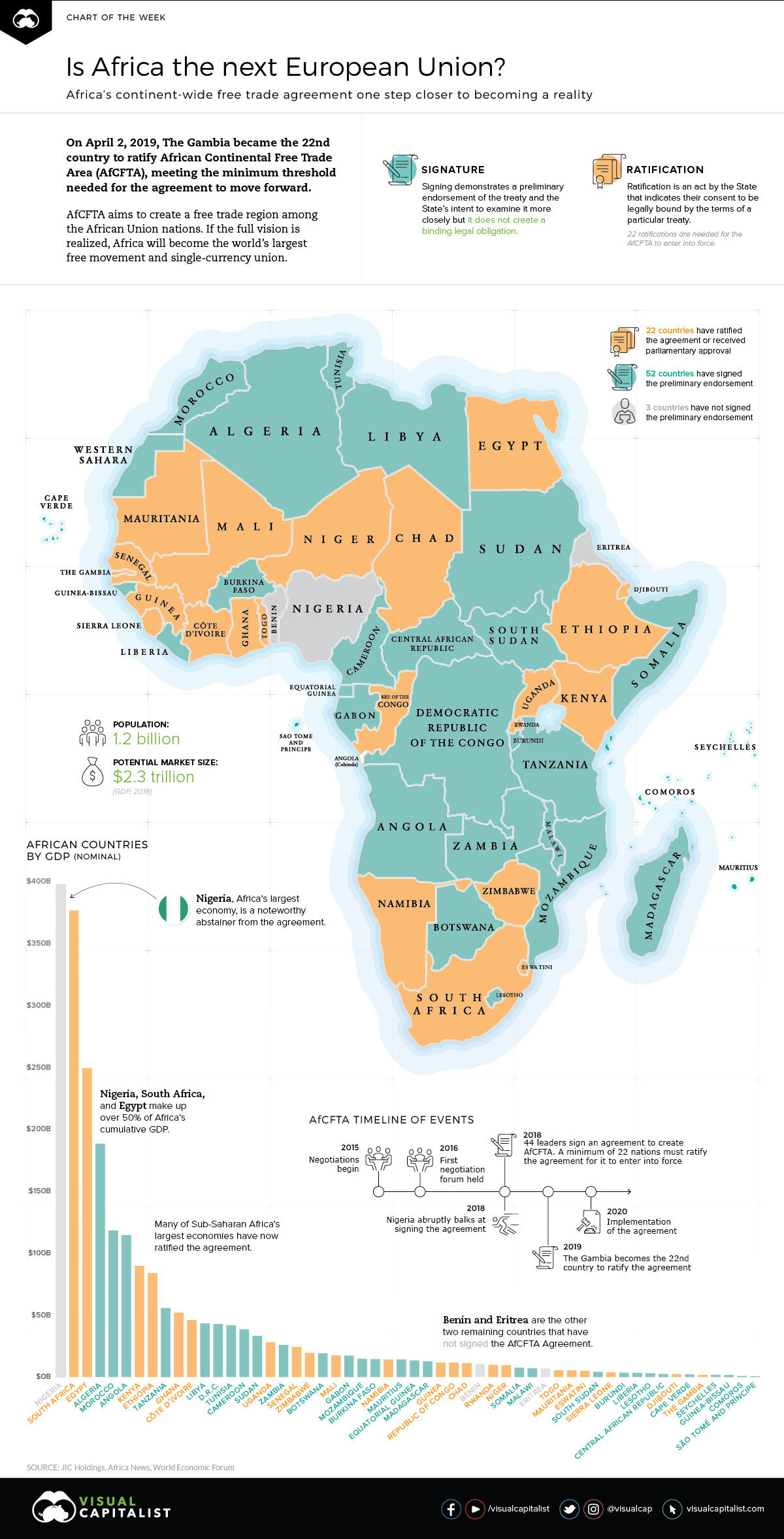
African Economic Giant Nigeria Joins ACFTA
The African Continental Free Trade Area, or ACFTA, is now officially operational. The trade agreement was launched in Niamey Niger. Nigeria which has the biggest economy in Africa had been a hold out. The Nigerian prevailing thought had been that Nigeria would lose more than it gained by joining the trade agreement.
The IMF warned Africans against the trade agreement. A sure sign that this is a good for Africans. All IMF policies toward Africa have failed therefore it is evident that Africans have to do the opposite of what the IMF advises. Many African countries saw their economies in free fall after adopting the IMF policies of Structural Adjustment programs (SAP) in the 20th century. Countries which were affected by these policies include Zimbabwe, India and Nigeria. Economic activity dropped, rampant unemployment increased and standard of living, healthcare and education all few under SAP.
The ACFTA trade agreement hopes will create an economic bloc of $3.4 trillion to bolster development and trade across the continent of Africa. The U.N. Economic Commission for Africa, however, estimates an increase in intra-African trade of 52.3 % by 2020, asserting it will increase employment, facilitate better use of local resources for manufacturing and agriculture, and provide access to less expensive products.
VOA News
Critics of the agreement argue that Africa’s transportation system cannot facilitate robust trade. This is where the China Road and Belt initiative steps in. China completed the British imperialist Cecil John Rhodes dream building a road that linked Cape to Cairo. Cape to Cairo was an essential transportation route for trade. China did in Africa what Africans failed to do for themselves under IMF guidance. Chinese infrastructure investments in Africa did what the British were incapable or doing at the height of their imperial ambitions.
Critics of the agreement, the ones who have a problem for every African solution have been trumping up negative press. They pointed to the reluctance of Nigeria to join initially as a sign that the trade agreement would fail. Nigeria then became a signatory and was part of the groundbreaking event in Niamey, Niger.
Nigeria’s concerns were legitimate. The focus of ACFTA is manufacturing because manufacturing is the gateway to industrialization. Nigeria on the other hand has a service based economy with services making up more than 50% of GDP.
Secondly Nigeria wanted the issue of property rights addressed. Nigeria is home to Nollywood. Nollywood is Africa’s biggest film industry and employs millions of people. It is important that Nigeria protect Nollywood’s intellectual property in the ACFTA agreement to ensure that Nigerians continue to own the means of production. An African economist said it best when he stated “ACFTA is a game changer which will ensure that Africa will have a seat at the economic table; rather than always being on the menu as has happened since colonialism until now.”




1 Comment
by Deni
Interesting take.
Comments are closed.